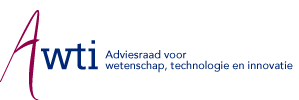Vertaling: WTI-Diplomatie - Offensief voor internationalisering van wetenschap, technologie en innovatie
The Netherlands is in the top five in the global competitiveness ranking, partly thanks to its innovative strength and the solid international position enjoyed by Dutch science. In order to stay in the top five, the Netherlands will need to remain one step ahead of competing countries. Those countries are not standing still: some of them are investing heavily in science, technology and innovation (STI) and are also making major efforts to support the internationalisation of their STI (‘STI diplomacy’), including attracting and retaining talent. It is therefore crucial for the Netherlands to ensure that our diplomacy and STI are mutually reinforcing in order to be able to grasp opportunities worldwide and not lose ground to competing countries.
The Netherlands has a number of diplomatic and other networks which actively support various aspects of science, technology and innovation. However, there is no overarching strategy or direction, and there is often no national policy with clear objectives for areas such as attracting and retaining talent and strengthening international innovative capacity. In practice, stakeholders such as research institutes, regions or top sectors regularly operate independently of each other. This limits the effectiveness of the Netherlands’ international and diplomatic efforts. Other countries, such as Germany, the United Kingdom or Switzerland, have a strategy with clear priorities which is translated into specific plans for STI diplomacy. Those countries achieve good results with this approach, and this demands a response from the Netherlands.
In addition, the Netherlands is less well equipped for STI diplomacy than some of its competing countries. Although the network of innovation counsellors (in Dutch: ‘innovatie attachés’) functions well, it is limited in size. Moreover, there are virtually no student or research scholarships of any significance for attracting talent to the Netherlands. The Netherlands Organisation for Scientific Research (NWO) has only a limited budget for bilateral scientific collaboration, and there is no longer a budget at all for bilateral innovation partnerships. Other countries are better equipped and have bigger budgets, which means the Netherlands is not only missing opportunities, but is in danger of falling out of the game altogether in the future. In response to these issues, AWTI makes the following recommendations to the government:
Recommendation 1
Formulate a vision for the internationalisation of STI and promote the development of a plan for (the role of) STI diplomacy based on that vision This vision is based on the interests of the Netherlands in the context of economic development, social challenges and essential key technologies. The government should decide on the countries with which the Netherlands should prioritise cooperation.
Recommendation 2
Set up a steering group to oversee the development of a Dutch strategy for STI diplomacy with clear objectives The government vision must be elaborated into a strategy for the internationalisation of STI and its supporting mechanism (‘STI diplomacy’). This strategy should be formulated by a steering group which includes the three Directors-General from the Ministry of Education, Culture and Science, the Ministry of Economic Affairs and the Ministry of Foreign Affairs, who receive a clear mandate for this from their ministers. The steering group also includes key representatives from business and society. This ensures that the steering group has sufficient authority to act and that it is supported by society as well.
Recommendation 3
Reserve an additional budget of 100 million euros per year The government should make available an additional 100 million euros per year for the development and implementation of the strategy (see Recommendation 4).
Recommendation 4
Elaborate the strategy into a multi-year plan for STI diplomacy, and implement it The strategy should be translated into a multi-year plan which is reviewed and improved every two years and which describes the deployment of available policy instruments and resources. The STI diplomacy strategy and plan together give stakeholders greater clarity regarding the national priorities. It will also mobilise them to translate the strategy, on the basis of their respective strengths, into the reality of their organisations. To ensure that the multi-year plan for STI diplomacy is effective, at least the following five elements must be in place; this is where the additional investment of €100 million referred to in Recommendation 3 comes in:
► Enlarge the diplomatic networks for STI;
► Strengthen and expand the policy instruments for international STI cooperation;
► Strengthen the ability to attract and retain talent;
► Increase the ability to influence EU research programmes and policy;
► Branding of the Netherlands as a centre of knowledge and innovation.
